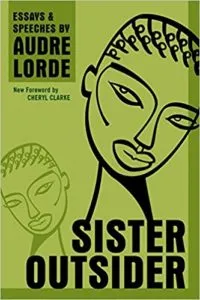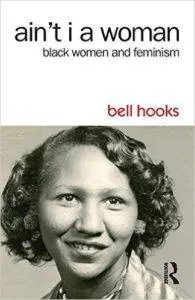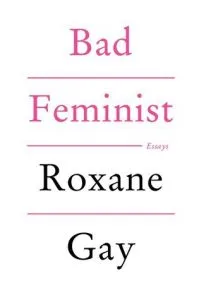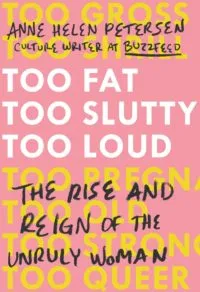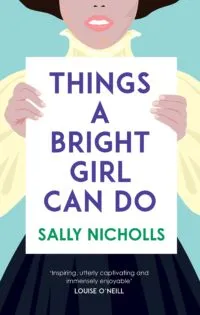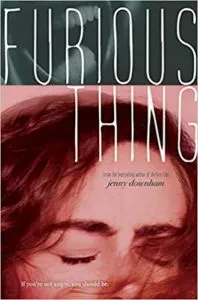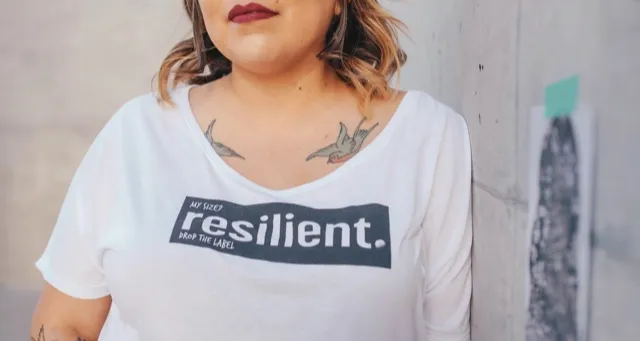
40 Of The Best Feminist Books
This content contains affiliate links. When you buy through these links, we may earn an affiliate commission.
What makes a feminist? It’s a question that pops up whenever feminism is discussed. Sometimes the answers are pithy and snappy (for example, the one given by Su in Roxane Gay’s Bad Feminist, one of the best feminist books, who states that feminists are “just women who don’t want to be treated like shit”). Sometimes they’re much longer, for better or for worse. Often there’s mention of makeup or high heels (can you be a feminist and like either? Depends on who you ask – my personal feeling is, yes, but never tell me they’re compulsory).
Sometimes it seems that there are as many different types of feminism as there are people who identify – or don’t – as feminists. Learning about feminism and trying to apply it to your life is a continuous process, with a multitude of perspectives to consider as you go. While reading the best feminist books is certainly not the only way to get involved in feminism, it’s a great way to encounter and engage with some of these perspectives. Here’s a rundown of some of the best feminist books that I’ve come across whilst trying to work out what being a feminist is to me.
Audre Lorde’s famous essay collection is a cornerstone of Black Feminism. Lorde discusses the uses of anger, the role of poetry in activism, and her own experiences as a Black lesbian in the USA, as well as calling out white feminism for excluding and erasing Black women.
With a title drawn from Sojourner Truth’s famous speech, bell hooks’s Ain’t I A Woman? is another classic of Black Feminism. Charting the history of feminism from its inception to the 1970s, the Civil Rights movement, and the impact of racism and sexism on Black women, it’s a crucial read by a towering feminist scholar.
Novels, essays or tweets – anything written by Roxane Gay is well worth reading, and Bad Feminist, her collection of personal essays, is one of her best. The widest range of topics is covered, including sexual violence, female anti-heroines, being a ‘bad’ feminist, and even the world of competitive Scrabble. Gay’s writing turns familiar topics on their heads, making you think about them in an entirely new light, and is fiercely funny as often as it is gut-punchingly frank.
Petersen’s book is a call to every woman who’s been told that she’s ‘too much’ – who takes up more space than patriarchal limitations allow. Looking at several different women, all of whom have been dismissed as being ‘too [something]’, Petersen considers why women are so often told to be ‘less’.
This historical YA novel tells the story of the Suffragette and Suffragist movements, through the eyes of three young girls frustrated by the limited roles that society offers for women at the beginning of the 20th century.
Anger is a feminist issue, and in this explosive YA novel, heroine Lexi learns to express her anger at a world that lets her and so many other girls down.
As I mentioned at the start of this post, feminism is such a huge and wide-ranging subject that this list only makes up a fraction of the great feminist books out there. Luckily, Book Riot has plenty more recommendations – have a browse through 10 Recent Nonfiction Books About Feminism, or 10 Feminist Books to Help Dismantle the Patriarchy. And if you want to talk feminist books with fellow readers, why not join Book Riot’s Instagram-based feminist book club, Persist?
Feminist Classics
Although we’re heading into a new year, and indeed a new decade, many of the issues that we’re facing seem very familiar. It’s disheartening that, yet again, we’re having to argue issues like “do women deserve bodily autonomy and equal rights?”, but at least there are a multitude of classic feminist texts that have already given excellent answers to those questions, which we can draw on in the ongoing fight for equality. Here are some classic feminist texts that make for great foundational reading.1. A Vindication of the Rights of Woman by Mary Wollstonecraft
In this classic of first-wave feminism, Mary Wollstonecraft made the argument that women deserved the same rights as men, including equal education – a fairly controversial statement in 1792. While many of Wollstonecraft’s opinions and attitudes about women’s roles in society might seem conservative by today’s standards, her writings played a major role in kick-starting the conversations that later feminists continued. 2. Sister Outsider by Audre Lorde
2. Sister Outsider by Audre Lorde
Audre Lorde’s famous essay collection is a cornerstone of Black Feminism. Lorde discusses the uses of anger, the role of poetry in activism, and her own experiences as a Black lesbian in the USA, as well as calling out white feminism for excluding and erasing Black women.
3. This Bridge Called My Back: Writings by Radical Women of Color, edited by Cherríe Moraga and Gloria E. Anzaldúa
This collection of writings by Black, Indigenous, Latinx, and Asian women looks at the intersections between feminism and race, class, and sexuality, and is generally viewed as one of the foundational texts of Third Wave feminism. Contributors include important feminist writers such as Naomi Littlebear Morena, Audre Lorde, Barbara Smith and the Combahee River Collective.4. Women, Culture and Politics by Angela Davis
Academic and activist Angela Davis is the author of many important feminist text, but Women, Culture and Politics is a particularly important read, looking at the importance of considering workers’ rights, racism and the prison industrial complex as part of feminist analysis.5. Gender Trouble by Judith Butler
An essential read for anyone interested in queer theory, Gender Trouble looks at the ways that gender has been, and continues to be, constructed and performed in various contexts and across societies.6. Fat is a Feminist Issue by Susie Orbach
First published in 1978, Fat is a Feminist Issue is just as relevant today, looking at women’s relationships with their bodies, the manipulative nature of the diet industry, and offering ways for readers to escape the trap of socially-imposed ideals of what their bodies “should” look like. 7. Ain’t I A Woman? by bell hooks
7. Ain’t I A Woman? by bell hooks
With a title drawn from Sojourner Truth’s famous speech, bell hooks’s Ain’t I A Woman? is another classic of Black Feminism. Charting the history of feminism from its inception to the 1970s, the Civil Rights movement, and the impact of racism and sexism on Black women, it’s a crucial read by a towering feminist scholar.
8. The Second Sex by Simone de Beauvoir
One of the best-known works of feminist philosophy, The Second Sex was a source of inspiration for Judith Butler and Betty Friedan. Comprising two volumes (Facts and Myths and Lived Experience), Beauvoir’s book tackles the treatment of women throughout history.9. The Madwoman in the Attic by Sandra Gilbert and Susan Gubar
Gilbert and Gubar’s work of feminist literary criticism might already be familiar to anyone who did an English Literature degree. The text looks at the way women are portrayed in 19th century novels, applying a feminist lens to the treatment of female characters, particularly the titular ‘madwoman in the attic’, Mr Rochester’s imprisoned wife Bertha.10. The Sacred Hoop: Recovering the Feminine in American Indian Traditions by Paula Gunn Allen
A must-read text in the field of Indigenous feminism, Paula Gunn Allen’s work is a history and celebration of women’s roles in various Native American traditions, looking at a return to tradition and spirituality as a way of countering colonialism.Recent Feminist Must-Reads
In recent years, there has been an explosion of brilliant feminist writing which looks at the relationships between gender, race, sexuality, class, dis/ability, and many other aspects of identity. If you want to learn more about third-wave and intersectional feminism, the feminist books below are a fantastic place to start.11. Colonize This! Young Women of Color on Today’s Feminism, edited by Bushra Rehman and Daisy Hernández
With essays on subjects including abortion, Muslim feminism, and the lack of contradiction in being both femme and feminist, Colonize This! celebrates the feminism of women of colour in the 21st century. It’s a fascinating and joyful read, with a multitude of feminist voices tackling crucial topics.12. Race, Class and Gender: An Anthology by Margaret L. Andersen
With over 60 essays exploring the intersections of gender, race, class and sexuality, Race, Class and Gender is a fantastic resource for gaining an understanding of multiple aspects of feminist theory. 13. Bad Feminist by Roxane Gay
13. Bad Feminist by Roxane Gay
Novels, essays or tweets – anything written by Roxane Gay is well worth reading, and Bad Feminist, her collection of personal essays, is one of her best. The widest range of topics is covered, including sexual violence, female anti-heroines, being a ‘bad’ feminist, and even the world of competitive Scrabble. Gay’s writing turns familiar topics on their heads, making you think about them in an entirely new light, and is fiercely funny as often as it is gut-punchingly frank.
14. The Gender Games by Juno Dawson
You might know Juno Dawson from her YA novels, but she’s also a fantastic nonfiction writer, and in The Gender Games she considers how gendered expectations and stereotypes damage everyone. Drawing on her own experiences as a trans woman, and insights from many other feminist writers and activists, Dawson delivers a manifesto on how to dismantle stereotypes.15. Feminism: A Graphic Guide by Cathia Jenainati and Judy Groves
This beautifully illustrated graphic novel offers a history of various feminist movements, a breakdown of the different waves and categories of feminism, and a guide to feminism in the present day, as well as featuring biographies of several prominent feminist figures.16. Feminism is For Everybody by bell hooks
One of hooks’s more recent works, Feminism is For Everybody is exactly what the title implies – a feminist primer looking at crucial feminist topics like race, class, reproductive rights, and sexual violence.17. Gender Outlaw by Kate Bornstein
Written by “a self-described nonbinary transfeminine diesel femme dyke”, Gender Outlaw is a radical work on gender, trans rights and feminism that encourages every reader to question society’s binary view of sex and gender.18. On Intersectionality by Kimberlé Crenshaw
Kimberlé Crenshaw coined the term intersectionality in 1989, and her theories and critical work have been a hugely influential part of feminism ever since. On Intersectionality is a collection of Crenshaw’s writings, with a new introduction by the author that clarifies this groundbreaking feminist framework.19. Can We All Be Feminists?, edited by June Eric-Udorie
In this essay collection, seventeen feminist writers discuss ways to make feminism more effective and inclusive. With contributions from writers such as Wei Ming Kam, Zoé Samudzi and Frances Ryan, Can We All Be Feminists? is a fascinating and thought-provoking read.20. Slay in Your Lane by Elizabeth Uviebinené and Yomi Adegoke
Subtitled ‘The Black Girl Bible’, Slay in Your Lane looks at the lives and experiences of Black British women. Uviebinené and Adegoke draw on stories from their own lives, as well as interviewing many other successful Black British women.21. Headscarves and Hymens by Mona Eltahawy
Author, journalist and activist Mona Eltahawy is a fearless fighter for women’s rights. Her first book, Headscarves and Hymens, challenges religious misogyny in the Middle East and the complacency of feminist movements in the West. 22. Too Fat, Too Slutty, Too Loud by Anne Helen Petersen
22. Too Fat, Too Slutty, Too Loud by Anne Helen Petersen
Petersen’s book is a call to every woman who’s been told that she’s ‘too much’ – who takes up more space than patriarchal limitations allow. Looking at several different women, all of whom have been dismissed as being ‘too [something]’, Petersen considers why women are so often told to be ‘less’.
23. Here We Are: Feminism for the Real World, edited by (Book Riot Editor) Kelly Jensen
A perfect read for feminist teens, Here We Are discusses girls in fiction, body positivity, activism, love, and much more. Taking a firmly intersectional approach, this collection is a fantastic introduction to feminism for young adult readers.24. Men Explain Things to Me by Rebecca Solnit
The inspiration for the term ‘mansplaining’, Solnit’s book of essays covers subjects including rape, marriage, the erasure of women from history, and the titular topic of men explaining obvious things to women (often ones with expertise).25. Down Girl: The Logic of Misogyny by Kate Manne
In Down Girl, philosopher Kate Manne analyses misogyny, how it functions, and what we can do about it. Manne puts the focus on how women are policed by society, how internalised misogyny is encouraged, and how misogyny differs from sexism.26. Revolting Prostitutes: The Fight for Sex Workers’ Rights by Molly Smith and Juno Mac
Written by two sex workers, Revolting Prostitutes discusses sex workers’ rights within a feminist framework. Sex workers’ voices are too often sidelined in mainstream and legal discourse, and in Revolting Prostitutes, Smith and Mac attempt to redress this imbalance.27. The Minority Body: A Theory of Disability by Elizabeth Barnes
Disability rights are a crucial aspect of feminism. In The Minority Body, Elizabeth Barnes gives an essential overview of the social vs. the medical model of disability, asserting that disabled bodies like hers should be viewed as different, rather than inferior, to abled bodies.28. Living a Feminist Life by Sara Ahmed
In this ‘killjoy manifesto’, Sara Ahmed describes ways to apply feminist theory to everyday life, and build support systems and solutions that can stand against the ongoing grind of sexism, racism, and other kinds of bigotry.Fiction, Poetry, and Feminist Nonfiction
Feminism is a movement and a framework for activism, but it’s also a source of inspiration, a springboard for creativity, and a prompt to look at neglected areas of history. Here are some recommendations for feminist novels, poetry, and nonfiction books.29. Asking For It by Louise O’Neill
Celebrated YA author O’Neill tells a devastating story of sexual violence and victim blaming, in this novel that was also turned into a highly rated play.30. The Handmaid’s Tale by Margaret Atwood
A classic of feminist fiction, The Handmaid’s Tale tells the story of Offred, a woman treated as nothing more than breeding stock by an oppressive, fundamentalist society. 31. Things A Bright Girl Can Do by Sally Nicholls
31. Things A Bright Girl Can Do by Sally Nicholls
This historical YA novel tells the story of the Suffragette and Suffragist movements, through the eyes of three young girls frustrated by the limited roles that society offers for women at the beginning of the 20th century.
32. The Deathless Girls by Kiran Millwood Hargrave
This contemporary Gothic novel reimagines the ‘dark sisters’ from Dracula, giving these two new vampires a voice that they never had in Bram Stoker’s original novel.33. Angela Carter’s Book of Wayward Girls and Wicked Women, edited by Angela Carter
This collection of stories, edited by a titan of feminist fiction, celebrates women who defy labels like ‘likeable’, ‘pleasant’ or ‘nice’, and instead go for ‘cunning’, ‘clever’ and ‘interesting’.34. The Belles by Dhonielle Clayton
Dhonielle Clayton’s debut novel, a fantasy story set in a world where appearances can magically be changed, isn’t just a gripping adventure – it’s also a sharp takedown of the dangers of the beauty industry.35. The Radium Girls by Kate Moore
This narrative nonfiction book deals with a groundbreaking battle to protect workers’ rights, health and safety. When the young women working for the Radium Dial Corporation in the early 20th century began to show signs of radiation poisoning, they started a legal battle for compensation that led to major changes in employers’ legal responsibilities. 36. Furious Thing by Jenny Downham
36. Furious Thing by Jenny Downham
Anger is a feminist issue, and in this explosive YA novel, heroine Lexi learns to express her anger at a world that lets her and so many other girls down.
37. The Blazing World by Margaret Cavendish
This very early feminist novel (and proto sci-fi story) was written by the Duchess of Newcastle in 1666, and follows the adventures of a woman who travels to an alien, utopian world.38. The Yellow Wallpaper by Charlotte Perkins Gilman
Another early feminist classic, The Yellow Wallpaper tells the story of a woman slowly undergoing a breakdown following extreme confinement as treatment for postnatal depression – and, frighteningly, was based on the author’s own experiences.39. Dialectic of the Flesh by Roz Kaveney
Roz Kaveney’s poems are well worth a read, and Dialectic of the Flesh is a beautiful exploration of queer and trans existence through verse.40. Rubyfruit Jungle by Rita Mae Brown
A quintessential lesbian coming-of-age story, Rubyfruit Jungle is a novelised telling of Rita Mae Brown’s own experiences as a young lesbian leaving home and setting out as a filmmaker.As I mentioned at the start of this post, feminism is such a huge and wide-ranging subject that this list only makes up a fraction of the great feminist books out there. Luckily, Book Riot has plenty more recommendations – have a browse through 10 Recent Nonfiction Books About Feminism, or 10 Feminist Books to Help Dismantle the Patriarchy. And if you want to talk feminist books with fellow readers, why not join Book Riot’s Instagram-based feminist book club, Persist?


